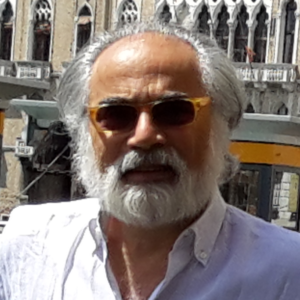Gergiev and the fallacies of the intellectual
I don’t really like Valerij Gergiev, but it is said that he is a very good (Russian) conductor. I don’t like his gesturality, exaggerated in my opinion, and his blank face, but it is a matter of taste, I admit it. Valerij Gergiev, a supporter of Vladimir Putin, has been asked to condemn the recent atrocious actions carried out by his despot friend. He remained, legitimately, quiet and impassive. Theatres from all over the world do not want him anymore and his contracts have been cancelled, following the precept according to which the artist is also a man, and has therefore to speak up.
We should have expected that the supporters of the ideological defence of civil rights would raise their voices to protest: condemning an artist because he is Russian is racism. As if to say that if I told the signatory poets of the “Manifesto of Fascist Intellectuals” that I did not feel like reading their poems and buying their books anymore, I would have to consider myself racist, since I would have discriminated some poets because they were Italian. And not because they were fascists. Therefore, some renowned intellectual proposes some fallacies, but pretends not to notice.
I have always believed that a poet or composer should not be ostracized for his antisemite belief. We read his works, we listen to his music, we also appreciate him as well, but we do not hang out with him in social gatherings. I think it for T. S. Eliot, the great W. B. Yeats, the rough, wretched Ezra Pound. Certainly, I can avoid and condemn their poetry when, where it happens, it has an antisemitic or racial content. However, a conductor is not a poet or a compositor. A conductor (that, like poets, has his own following of admirers, ready to be influenced) is an artist the moment he physically and personally embodies the music that he performs. The conductor is in his own flesh a man in the expression of his art. And this makes a difference.
Therefore, we must choose between being immoral, condemning the invasion of Ukraine and, as a consequence, those who support it (and maybe even be accused of racism by some ideologist who believes in the innocence until proven guilty), or being immoral again by choosing to not condemn Gergiev (and the like), and still be scandalized by the invasion of Ukraine.
This is one of the cases where discussing with intellectuals makes you feel deeply hypocritical. I condemn the invasion, however also the Ukrainians are wrong in their part. I condemn the invasion, but the Ukrainians shouldn’t get armed, because in this way they support the war, and I am a pacifist.
It is discussed in the Talmud the case of two people in a desert having only one supply of water. If they shared it, they would both die. Who should drink then? The one having the water or the other one? Which one should prevail, selfishness or altruism? The Talmud, with its questions, is a source of wisdom. Maybe the answers are less important than it may seem. The important thing is to question oneself, and to do it consciously.
There always comes a time when you have to take a side, even with the risk of breaking a little principle in favour of a more important one. The choice is always personal, and defines the level of your conscience. Even and especially with the responsible error.
Intellectuals can make mistakes too, if you do not agree with them delete your criticism from their Facebook page.
Translated by Alice Pugliese and revised by Gianluca Pace, students at the Advanced School for Interpreters and Translators of the University of Trieste, interns at the newspaper office of the Union of the Italian Jewish Communities – Pagine Ebraiche.

